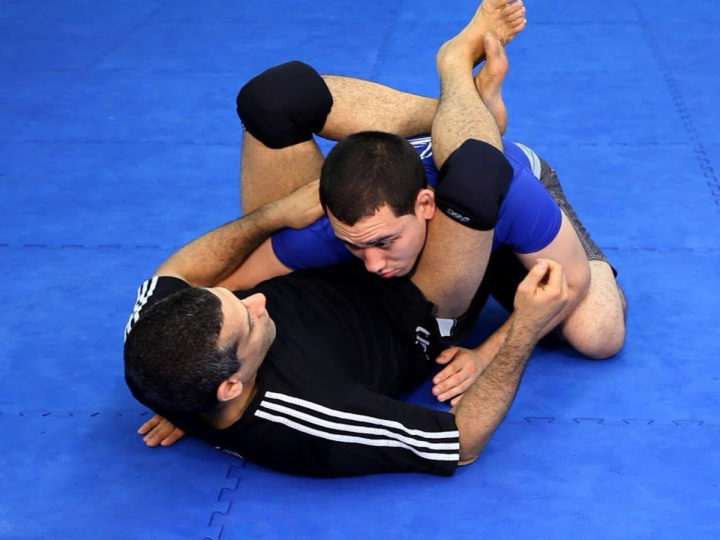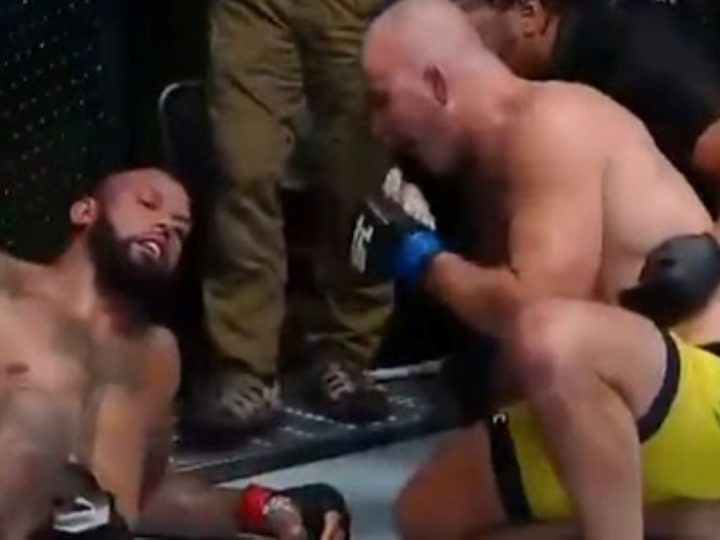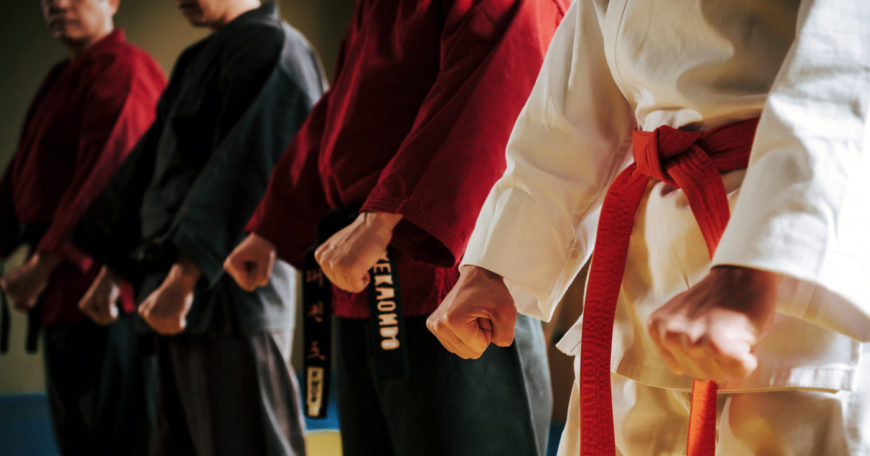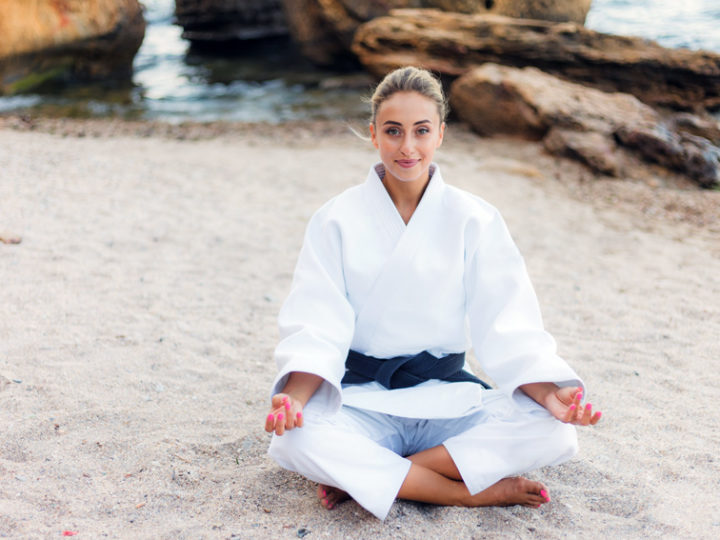When many people first hear the term “Brazilian jiu-jitsu,” they think about many traditional martial arts that involve strikes, kicks, and stances. More recently, the popularity of mixed martial arts and professional submission grappling events has helped dispel misconceptions about the sport, but there are still many people who walk into their first jiu-jitsu class having no idea what to expect… or simply realizing they weren’t adequately prepared for what they’d experience on the mats.
As a relatively young grappling art, Brazilian jiu-jitsu differs greatly from other martial arts and combat sports. Whether BJJ will be your first-ever foray into an exercise habit or you have a background in other sports like wrestling, here are some things you should know before you sign up for jiu-jitsu:
1- Hygiene is important.
Jiu-jitsu puts you in constant close contact with other sweaty people. Cleanliness and good hygiene are crucial to keep yourself and your teammates safe and healthy. Plus, you’ll have many more people who want to train with you if you smell nice.

Before you show up to train, make sure that:
- Your nails are short and clean. If your nails extend past your fingertips (or toe tips), they’re too long and can scratch yourself or your training partners. This isn’t just painful — it can also cause infections.
- You’re showered and wearing effective deodorant. Going straight from a dirty or smelly job to the mats is an easy way to ensure that no one will ever want to train with you. Make sure that you are clean and smell clean before you begin your training session. Your teammates will be even more grateful if you also brush your teeth before class.
- Your gear is freshly washed. Even if it was a “light” session, never wear rashguards, gis, shorts, or spats more than once without a wash in between classes. Bacteria (from you, other people, and the mats themselves) thrive on fabric, and people will actively avoid rolling with you if you develop a reputation for having smelly gear.
- You don’t come to class if you’re feeling sick. This doesn’t just apply in the era of COVID. If you even suspect that you’re coming down with a cold or stomach bug, stay home. Yes, you may miss out on some training, but it’s far more important to keep your teammates and their loved ones safe and well.
For some, these reminders will seem like common sense. For others, it’s a lot to remember, especially when you’re rushing from work to home and then to the gym. Keep some nail clippers and deodorant in your gym bag so you always have the basics covered when you show up to train.
2- Injury prevention involves more than just tapping out.

Jiu-jitsu involves a lot of chokes and joint locks, and from your very first day of training, you’ll be encouraged to tap out before an injury takes place. It’s always better to tap too early than too late, and while you’re getting to know the sport and your body’s limits, it’s ok to tap out well before your limb is fully extended or before you really start to struggle against a choke. There’s no shame in keeping yourself safe, especially in the gym. You’re there to learn, and letting yourself get hurt for the sake of your pride could lead to months of recovery that can keep you away from training and even take you out of work, especially if you require surgery.
Tapping out isn’t the only injury prevention you have to worry about in BJJ, though. Though jiu-jitsu isn’t a striking sport, accidents do happen, and dental work is expensive. Invest in a good mouthguard to protect yourself from errant elbows and knees, and wear it whenever you train.
Finally, don’t let jiu-jitsu be your only physical activity. Stretching and mobility exercises are important for longevity and injury prevention on the mats, especially if you want to increase your defense against submissions. Strength and conditioning will also ease the strain on your joints and help protect you against the damage that jiu-jitsu can do to your body over time.
3- The road to black belt is a long one.

Jiu-jitsu isn’t the martial art to get into if you want to be on the fast track to black belt bragging rights. Most jiu-jitsu practitioners need a minimum of ten years before earning their black belt, and ironically, many of them don’t even feel ready for it by the time they receive it.
When you start training, be prepared to be a beginner for a long time. Most students will spend at least a year or two as a white belt, even if they train consistently. In most cases, it’s not because your instructor is holding you back, but simply because there is so much to learn in BJJ. Jiu-jitsu will likely begin to make sense at some point during your blue belt career, and when it does, you’ll begin to realize just how much you still have to learn.
Part of the reason for the length of the typical jiu-jitsu journey is that there are many different techniques and styles in BJJ. For example, just because you’re really good at no-gi jiu-jitsu doesn’t mean you know what to do when you and your opponent are wearing gis. Many academies also require students to have a good understanding of wrestling and judo techniques before they earn their black belt. It’s a long and difficult process, but it’s completely worth it.
Related: How Many Years Does It Take To Earn A BJJ Black Belt?
4- You can refuse to roll with anyone, for any reason.
In a healthy BJJ academy environment, you won’t be forced to roll or train with anyone you don’t want to. This is important for a safe and comfortable culture within the gym, ensuring that students with injuries can be “picky” about their training partners to protect themselves. Survivors of abuse or assault, or people who practice certain religions, may also choose to only train with training partners of the same gender.
Obviously, being highly specific about who you’re willing to train with will limit you in your jiu-jitsu journey — refusing to roll with a large number of people decreases the knowledge that you could’ve picked up from training with everyone. Plus, there’s no guarantee that the small handful of people you’re comfortable training with will always be available. But if you’re willing to make that sacrifice for your mental and physical wellbeing, then don’t be afraid to say, “No thanks,” when someone asks you to partner up.
Keep in mind that this often-unspoken rule is universal, and your teammates are also within their rights to decline training with you. Newer students, in particular, tend to move fast and be a bit clumsy and unintentionally reckless while rolling. This, of course, gets better with time as you learn new techniques and develop better motor skills for grappling, but if other students (particularly upper belts, who will have received plenty of accidental knees to the face during their years on the mats) are consistently declining rolls with you, it may be time to reexamine how you’re rolling. Making the effort to slow down and think before you move might get you submitted more, but it’ll make you a safer training partner while improving your BJJ.
5- You can compete, but you don’t have to.
For many BJJ students, competing is the ultimate goal. Some have aspirations of being world champions, while others just want to test themselves in local events. Many academies have competition teams, with an explicit focus on developing their students to be active competitors.
This is a great opportunity for new students of any age to get some competition experience in. There are divisions for children, teens, and even specific categories for adults well into their forties, fifties, and beyond. As long as you have some experience and your instructor gives you the go-ahead, there’s a place for you to compete at both the local level and the most elite levels of the sport.
If you decide that competition isn’t for you, however, don’t make the mistake of thinking that there are no other goals for you to accomplish in jiu-jitsu. Many students never compete, instead practicing jiu-jitsu to de-stress after work or simply get some exercise in. Others go on to become coaches as they move up the ranks. Even if all your teammates seem addicted to the thrill of chasing medals and high-stakes matches, that doesn’t mean your goals have to align with theirs. Your jiu-jitsu journey is yours and yours alone.
Coming In Prepared
Starting jiu-jitsu is much easier when you have an idea of what to expect. While all the rules (both written and unwritten) may seem intimidating at first, they’ll become second nature over time. Before you know it, you will be the one helping brand-new students feel more comfortable as they begin their long journey on the mats.










